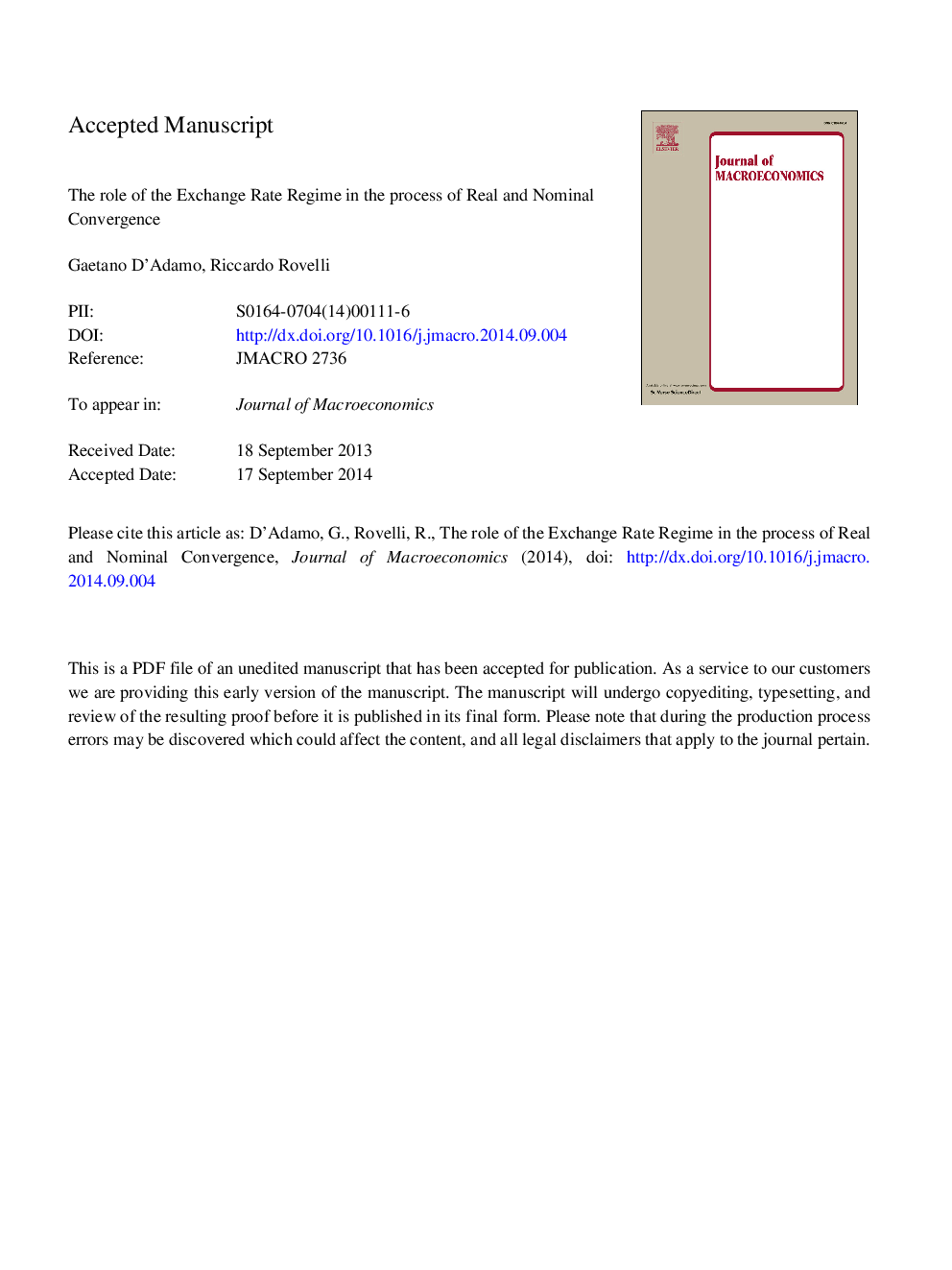| Article ID | Journal | Published Year | Pages | File Type |
|---|---|---|---|---|
| 965298 | Journal of Macroeconomics | 2015 | 34 Pages |
Abstract
The Balassa-Samuelson (B-S) hypothesis suggests that, in catching-up countries, inflation will be comparatively higher, as prices of non-traded goods “catch up” with the growth of productivity in the tradable goods sector; as a result, these countries will experience real appreciation. However, a general result of the literature is that the B-S effect can only explain part of the excess inflation observed in European catching-up countries. One feature of these studies is their neglect of the role of the exchange rate regime in affecting price convergence. In this paper, instead, we argue that the choice of the exchange rate regime may affect nominal convergence. To show this, we first model the regime choice and, in a second stage, estimate a B-S type of regression for each regime. Our results show that, for countries that pegged to or adopted the euro, the effect of an increase in dual productivity growth (the difference in productivity growth between the traded and non-traded sectors) on the dual inflation differential is twice as large as that in “flexible” countries. We conclude that, in catching-up countries, too early adoption of the euro may foster excess inflation, beyond what would be implied by B-S convergence only.
Related Topics
Social Sciences and Humanities
Economics, Econometrics and Finance
Economics and Econometrics
Authors
Gaetano D'Adamo, Riccardo Rovelli,
